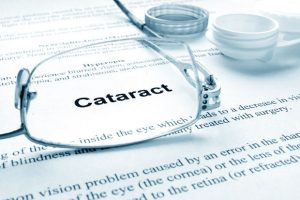 Today marks the beginning of National Epilepsy Week and your friends at Bel Marra have taken the time to round up much of the information you need to get you up to speed on this neurological condition. Seizures can be scary and confusing, so it’s best to stay informed. We also have information on cataracts, diabetes, and heart rate to kick off the week ahead.
Today marks the beginning of National Epilepsy Week and your friends at Bel Marra have taken the time to round up much of the information you need to get you up to speed on this neurological condition. Seizures can be scary and confusing, so it’s best to stay informed. We also have information on cataracts, diabetes, and heart rate to kick off the week ahead.
Cataracts, epilepsy, and antidepressant use linked to glutamate receptor proteins in eyes: Study
Cataracts, epilepsy, and antidepressant use linked to glutamate receptor proteins in the eyes. Corresponding author Peter Frederikse said, “Recent studies identified associations between increased cataracts and epilepsy, and showed increased cataract prevalence with use of antiepileptic drugs as well as some common antidepressants. One common theme linking these observations is that our research showed the most prevalent receptor for the major neurotransmitter in the brain is also present in the lens.”
Advertisement
The researchers found that glutamate receptor proteins—specifically GluA2 subunit—are expressed in the lens and appear to be regulated in a similar fashion in the brain. In the nervous system, GluA receptor proteins promote memory formation and mood regulation, and play a role in the epilepsy pathogenesis. Continue reading…
 Diabetes, epilepsy, and asthma may increase risk of suicide and self-harm: Study
Diabetes, epilepsy, and asthma may increase risk of suicide and self-harm: Study
Diabetes, epilepsy, and asthma may increase the risk of suicide and self-harm. For the study, the researchers compared different psychiatric and physical disorders in England. Along with diabetes, epilepsy, and asthma, other physical illnesses associated with a higher risk of suicide and self-harm included migraine, psoriasis, eczema, and inflammatory polyarthropathies.
Authors Dr. Arvind Singhal and Dr. Jack Ross said, “It is important for physicians, general practitioners, and mental health workers to be aware of the physical disorders that are associated with an increased risk of self-harm so that at-risk individuals may be better identified and can be monitored for any psychiatric symptoms and mental distress.” Continue reading…
 Cannabidiol seen to provide overall improvement for severe epilepsy patients
Cannabidiol seen to provide overall improvement for severe epilepsy patients
Seizures are often dramatized on television and in movies—they depict a person collapsing to the ground while they convulse (shake), contracting every muscle in their body. While this can be the case, not all seizures look like this, as some can take on a more subdued presentation. But seizures, in general, are the symptom of a brain problem, happening suddenly due to abnormal electrical brain activity. Treatment usually includes the implementation of powerful sedative drugs with variable levels of effectiveness, however, researchers have found that the use of cannabidiol—a chemical component of cannabis—can significantly reduce seizure activity. Continue reading…
 Epilepsy-related seizures can be predicted by measuring heart rate variability
Epilepsy-related seizures can be predicted by measuring heart rate variability
Epilepsy-related seizures can be predicted by measuring heart rate variability. The findings come from researchers in Japan who found that epileptic seizures may be better predicted using electrocardiogram to measure fluctuations in the heart rate than by measuring brain activity. This is also effective because wearing a heart monitor is much easier.
Epilepsy is a chronic disease that affects roughly one percent of the population. The disease is characterized by recurrent seizures, which are a result of excessive excitation that suddenly occurs in nerve cells (neurons) in the brain.
Advertisement
Anti-epileptic drugs allow the majority of patients to live a normal life, but some patients are drug-resistant, meaning their seizures cannot be controlled by medications, leaving the patients living in constant fear of an impending seizure. Being able to predict seizures can offer these patients greater peace of mind. Continue reading…
 Epilepsy patients sleeping on stomach face sudden death risk: Study
Epilepsy patients sleeping on stomach face sudden death risk: Study
Epilepsy patients who sleep on their stomach face sudden death risk similar to SIDS (sudden infant death risk), according to research. Study author Dr. James Tao said, “Sudden unexpected death is the main cause of death in uncontrolled epilepsy and usually occurs unwitnessed during sleep.” Among epileptics, the risk of death while asleep is highest among patients with tonic-clonic seizures.
The researchers reviewed 25 studies, which included 253 sudden deaths. Body position during sleep was recorded. The researchers found that 73 percent of sudden deaths occurred in individuals sleeping on their stomach, and the remaining 27 percent accounted for other sleep positions. Continue reading…
